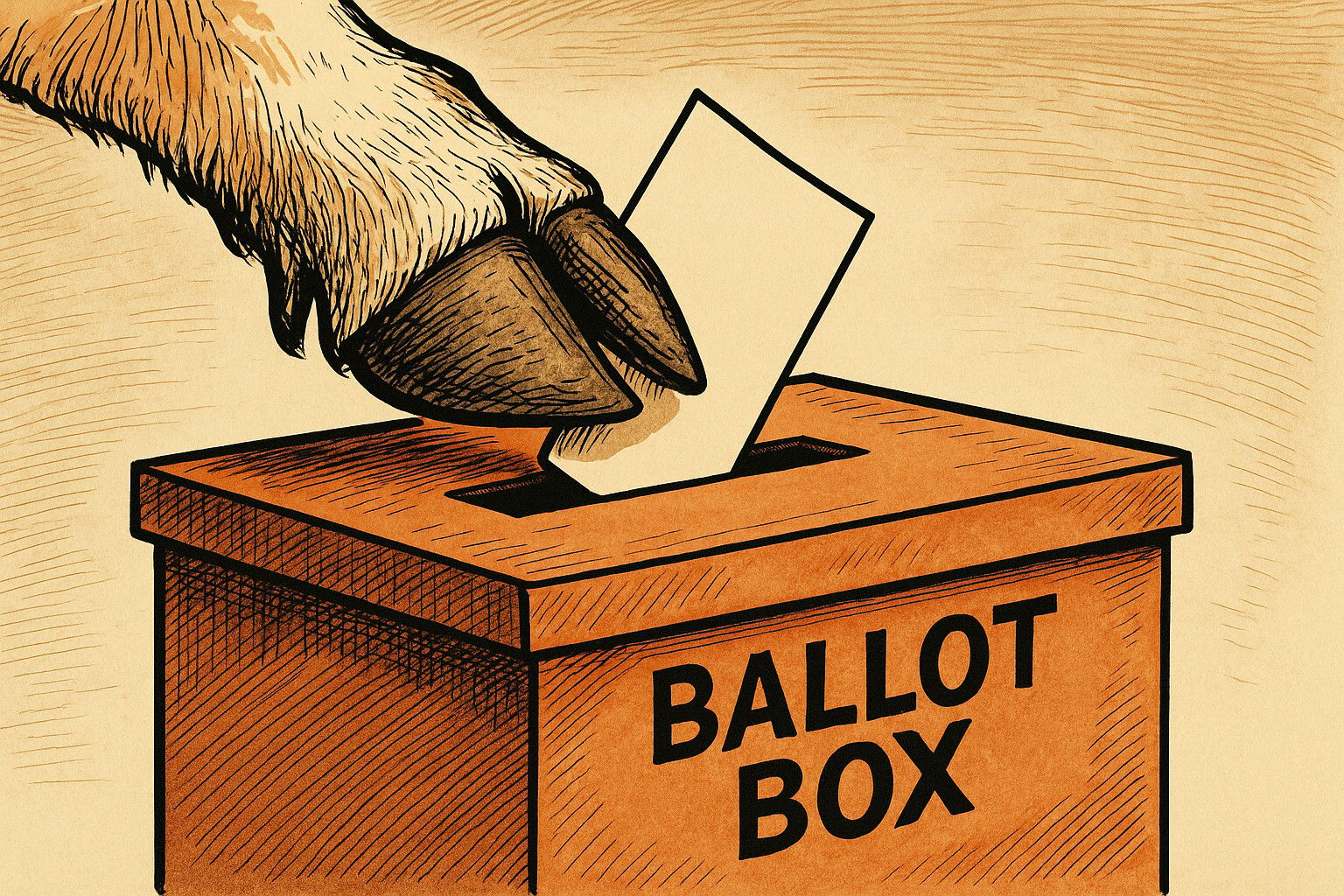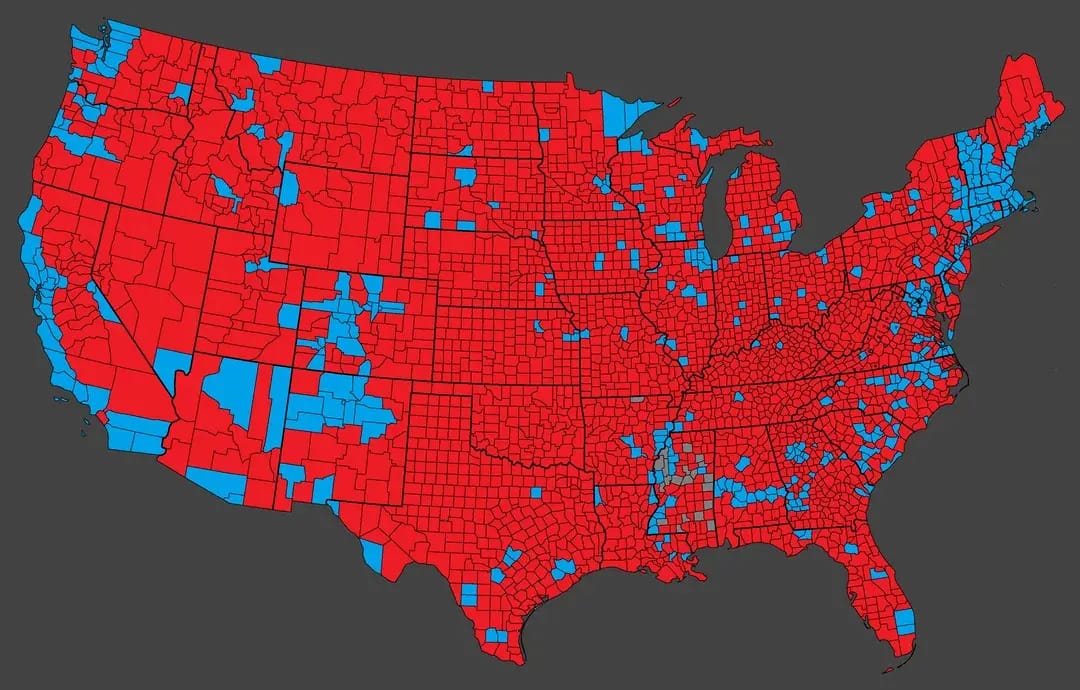- The Frontline Progressive
- Posts
- One Vote, Unequal Weight
One Vote, Unequal Weight
Why geography, not democracy, decides how much your voice counts in America

Can corn fields and cattle vote?
The ugly reality in America is that where you live determines the value of your vote. A good example is the difference between Wyoming and California. People in Wyoming have far more political power and representation than people in California.
Reviewing the numbers: Wyoming has about 580,000 people and sends one representative and two senators to Congress. That works out to about one legislator for every 193,000 residents. California, with nearly 39.5 million people, sends 52 representatives and two senators. That means California has one legislator for about every 732,000 residents. This makes a big difference in Presidential elections, where individuals in Wyoming have 3.6 times the voting power as individuals in California.
So, if you’re living in California and want to vote multiple times for president, you can do so, legally. All you have to do is move to Wyoming.
It gets worse when you look at the U.S. Senate. Wyoming has one senator for every 290,000 people. California has one senator for nearly 19.75 million people. This means a Wyoming resident has about 68 times more representation in the Senate than a Californian.
Though humorous, it’s not too far off the mark to say that corn fields and cattle can vote.

From the 2024 election, showing how, in a sense, real estate does indeed vote in our elections
This crazy system goes back to the Constitutional Convention in 1787. The framers wanted to make sure large states could not overpower smaller ones. The compromise they came up with gave each state two senators, no matter its population. It also allowed slaveholding states to count enslaved people as three-fifths of a man for the purpose of representation. This gave smaller slave states extra political power while denying rights to the enslaved. From the beginning, the system placed state equality above the principle of “one person, one vote.”
Today, this voting system has been turned on its head. It has the opposite effect of what the framers intended. Instead of protecting smaller states from larger ones, it gives rural areas far more influence than cities. How can this be? The times have changed. In the 18th century, only about 5% of Americans lived in cities. Now about 80% of the population lives in cities or suburbs. Yet, the 20% who live in rural areas still take advantage of 18th-century principles; they hold a huge political advantage due to an outdated system that was never updated to reflect modern reality.
Over time, political leaders have learned to use this imbalance. Since the Civil Rights era, Republicans in particular have worked to build strength in rural areas. They have used tools like AM radio, which reaches across long distances, and alliances with religious leaders, who often have strong influence in rural communities. This long-term strategy has given them tremendous leverage that goes way beyond their share of the population. It helps explain why presidents sometimes win the Electoral College while losing the national popular vote. Though not intentional, the system is rigged by an 18th-century document that fails to recognize 21st-century realities.
The original concern of the framers—that majorities might oppress minorities—was an important one. But the country has changed dramatically since then. Now the larger share of Americans who live in cities find their voices limited, while the smaller rural population enjoys outsized influence in national politics.
Living in a city or suburb should not mean having less of a voice in government. Protecting the rights of less populated states isn’t any less important, but that role should be assigned to the courts, not to an electoral system that gives some Americans far greater power than others. Until this imbalance is addressed, the United States will suffer under a degraded form of democracy, where every citizen’s vote does not carry the same weight.
Progressive news doesn’t have to be depressing. Smile! There’s good news available!
|
Reply